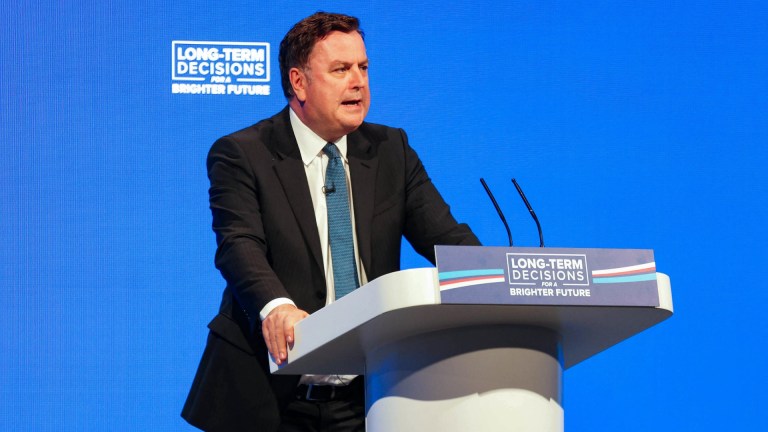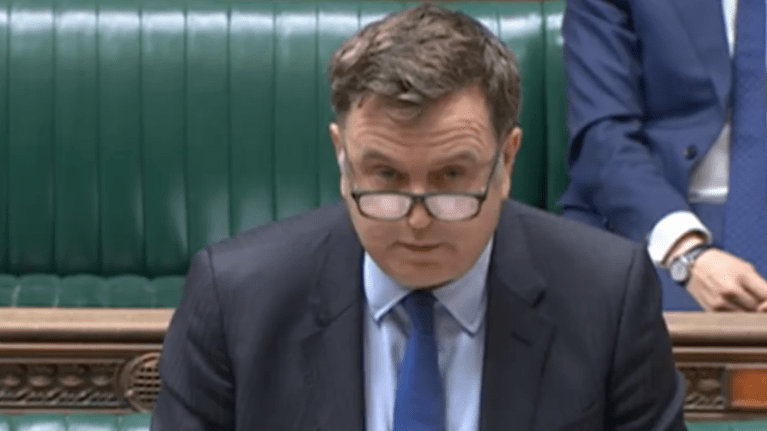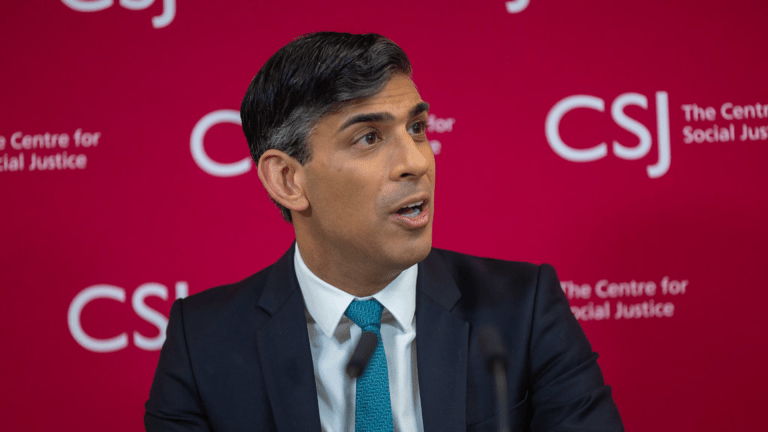Holmes applied for universal credit in April and was approved for the limited capability for work and work-related activity element (LCWRA) in early June. It takes five weeks for the first payment of the universal credit basic rate to hit bank accounts after claiming, during which Holmes said she was effectively living on “fresh air”.
She was not informed by the DWP that there is also a three-month waiting period – known as a “relevant period” – for the additional LCWRA element of universal credit to come through. This is not stipulated on the government’s website, and it was not until she queried it that the DWP told her she would have to wait for the full amount to hit her account.
This process of having to contact the DWP “used a lot of time and energy” which she does not have because of her MS. “It’s stressful,” she said. “It is so tiring waking up to the idea that no one actually cares, and that ultimately, you’re just another tick box. They have to tick boxes so they are going to do it, but they’re going to do it in their own time.”
For the last three months, Holmes has been living on the basic rate of universal credit which, because she is under 25, is just £292.11. The extra LCWRA part of universal credit is worth £390.06 each month, which is the typical amount awarded to people who have a limited capability for work.
“I know I can’t be the only one experiencing this drastic change in finances, despite approval for the element,” Holmes said. “I’ve proven my disability, so what am I suffering for? It makes my physical and mental health disabilities even worse. I’d jump off a bridge if I could to be honest, but the sad reality is I can’t even do that.”
The young woman lives with her mother, who is her full time carer, but other people living with disabilities may not be as lucky. “She is doing her best,” Holmes said. “She has spent basically all her money on me because she loves me a lot, and I’m very thankful for that.”
Holmes struggles with isolation because of her disability and mental health conditions, and her pets provide emotional support, but she is struggling to afford their basic needs.
“I’m isolated and unable to leave the house much,” she said. “Half of that money minimum goes on my dog’s insurance and food. I’ve had both my dog and cat requiring vet attention, which I now owe money for too. I shouldn’t have to rely on prescribed meal replacements for lunch so I can afford to feed my dog.”
Holmes can’t even afford to feed herself. Her mental health worker applied for food parcels to be delivered to her because she is physically unable to get to a food bank. Disabled people face extra costs, with charity Scope estimating households with a disabled person or child face extra costs of £975 a month on average.
More than half of households unable to afford food, and three quarters of people referred to food banks in the Trussell Trust network, are disabled or live with someone who is.
In the cost of living crisis it is worse than ever. Energy bills are more expensive for disabled people, who often need extra heating to stay warm or charge up assistive technology. Food comes at an extra cost too – Holmes has to pay more for a special low-fat diet because of problems with her gallbladder.
Holmes contacted her MP, who put in a complaint on her behalf. “I had a phone call with them. They explained it to me, and basically said we can’t do anything about this. This is a policy that needs changing in parliament.”
So Holmes is trying to do that. She has set up a petition calling on the government to scrap the three-month “relevant period” for the LCWRA element of universal credit.
“It’s outdated and, in my opinion, discriminatory given it doesn’t apply to other elements,” Holmes said. There is a similar waiting period for employment and support allowance (ESA), which is also paid to disabled and severely ill people with a limited capability for work.
Universal credit and ESA claimants can apply for a “budgeting advance” from the DWP to help pay for emergency household costs before they get the first payment, but this was not an option for Holmes to get the LCWRA element because she was already receiving the basic rate of universal credit.
Your support changes lives. Find out how you can help us help more people by signing up for a subscription
“I know I’m not the only person,” she said. “I’m just the only person that’s tough enough to fight it. It could happen to anyone. At any point in life, someone can become disabled. No one is an exception. I didn’t expect to become disabled at 15. I had my whole life ahead of me.”
If the policy was changed, it would not benefit Holmes. She is set to get her payments in August, but she wants to fight for change to help other people.
A spokesperson for the DWP said: “The three-month period helps establish if a claimant has a long-term health condition. There are exceptions for people who are terminally ill or those who have previously claimed universal credit and have already served the relevant period.
“We are committed to improving the experience for people applying for and receiving benefits, as set out in our Health and Disability White Paper.”
The DWP plans to replace LCWRA with a new health element of universal credit, but Holmes has little hope the changes will be positive.
“It comes across to me like a method of psychological warfare, a way to pressure claimants into working via desperation from living in poverty,” Holmes said. “It feels like we’re meant to stay in this three month period where we are so poor that we end up considering working even though we physically cannot.
“But with the pressure of being so poor, and so drained from that psychological warfare, you consider it – not because you want to, but because you have to. That’s what it feels like to me.”
Sign Holmes’s petition to remove the three-month “relevant period” for universal credit LCWRA here.
Get the latest news and insight into how the Big Issue magazine is made by signing up for the Inside Big Issue newsletter
Do you have a story to tell or opinions to share about this? We want to hear from you. Get in touch and tell us more.









